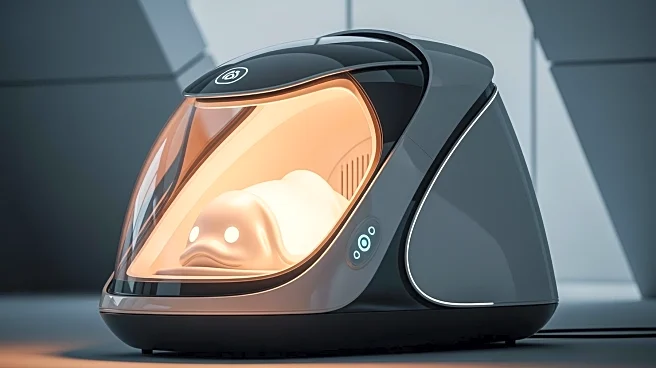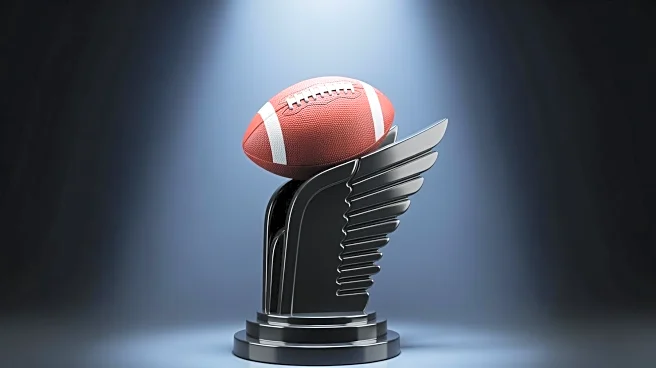What's Happening?
Tom Brady has revealed that his new dog, Junie, is a clone of his late pitbull mix, Lua, who passed away in 2023. Brady collaborated with Colossal Biosciences, a biotech company he invests in, to clone Lua using
a blood sample collected before her death. Brady and his ex-wife, Gisele Bündchen, adopted Lua during their marriage, and the dog was a beloved family member. Colossal Biosciences, based in Dallas, recently acquired Viagen Pets and Equine, a leader in animal cloning. This technology has previously been used to clone pets for celebrities like Barbra Streisand and Paris Hilton.
Why It's Important?
The use of cloning technology in pet ownership represents a significant advancement in biotechnology, offering pet owners the possibility of extending their relationships with beloved animals. This development could impact the pet industry by increasing demand for cloning services, potentially leading to ethical debates about the implications of cloning pets. Additionally, the collaboration between Colossal Biosciences and Viagen Pets may pave the way for further innovations in cloning technology, including applications for endangered species conservation. The involvement of high-profile figures like Tom Brady could also influence public perception and acceptance of such technologies.
What's Next?
As cloning technology becomes more accessible, it is likely to spark discussions among pet owners, animal rights groups, and ethical committees about the moral and practical implications of cloning pets. The acquisition of Viagen Pets by Colossal Biosciences may lead to expanded services and research into cloning technologies, potentially influencing regulations and standards within the biotech industry. Stakeholders in the pet industry may need to address concerns about genetic diversity and the welfare of cloned animals, while also considering the potential benefits for conservation efforts.
Beyond the Headlines
The cloning of pets raises questions about the ethical considerations of replicating living beings, including the potential impact on biodiversity and the natural lifecycle of animals. As cloning technology advances, it may challenge traditional views on pet ownership and the emotional bonds between humans and animals. Furthermore, the use of cloning for endangered species conservation could offer new solutions for preserving biodiversity, but it also necessitates careful consideration of ecological balance and genetic integrity.









